7 Unique Indian Traditions And Customs
By: Kratika Tue, 26 Oct 2021 6:00:04
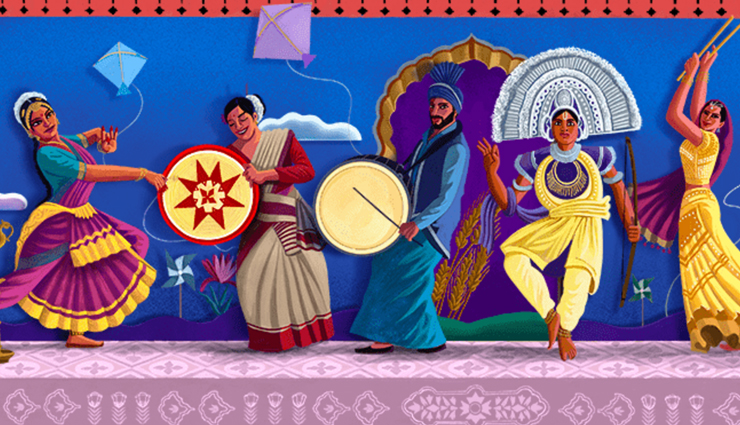
India is an amalgamation of many different communities, with multiple religions, ethnicities, views, opinions, customs, languages and cultures and traditions. While the country is known for some of the most brilliant scientific minds in the world as well as advanced technology, it’s also home to people whose lives are all about Indian culture and traditions. There are many Indian traditions that are still strictly followed by people across the country, even if surrounded by opposition and controversy. Even in an increasingly modern world, Indian society still places a lot of importance on Indian culture. There are also many customs in India that are a major attraction for tourists curious about experiences beyond their own immediate world.
India’s culture and traditions are seen in various aspects of life. Some are seen in festivals and arts, through song and dance. Others can be a ritualistic part of many a family. Some are the result of religious influence or history. Even a system like arranged marriage is in a way a tradition. Due to its immense population, India has many things that influence its culture. Let’s take a look at some of the most unusual ones and how they came about.
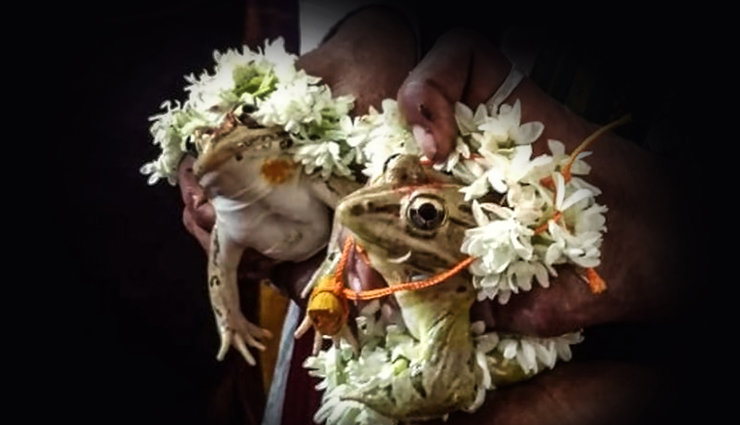
# Pacifying The Rain Gods, Frog Weddings
All over the world, various ethnicities perform different rituals to appease the rain gods. Few, however, are quite as unique as the ones performed in India. Here, frogs are married in a traditional Hindu wedding ceremony, with the hope it will appease the rain gods and initiate the onset of rains. The ritual is performed when the monsoon season (usually between June and September) is delayed, leading to a fear of drought in the largely agricultural nation. Before the ritual, a male frog is named Varun (the god of water), and the female frog is named Varsha (named after the monsoon or rainy season). The practice is so ingrained in the Indian culture and tradition that it is found across the country in multiple states like Assam, Maharashtra, and parts of Karnataka. In some parts of the country, the marriage of other animals like dogs and donkeys in a bid to please the rain gods is also common.
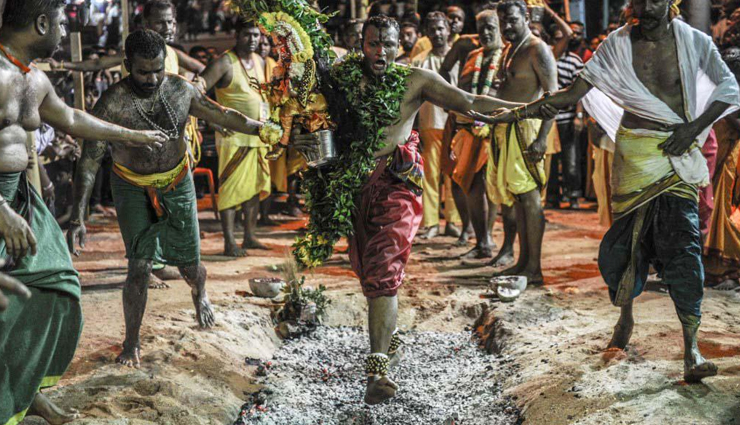
# A Re-enactment Of Draupadi’s Walk Across Fire, Thimithi, Tamil Nadu
Thimithi or fire-walking is one of the less bizarre, yet unique Indian traditions and is celebrated every year in October and November in honour of Draupadi, the wife of the five Pandava brothers in the epic Mahabharata. This festival originated in Tamil Nadu and has also spread to other countries that have a large South Indian population. While, in some parts of the world, a walk across a bed of fire is sometimes done as a show of overcoming one’s fear or to show off extraordinary strength, in Tamil Nadu and countries like Sri Lanka, Singapore, Malaysia, Fiji, parts of South Africa and other countries, Thimithi is a re-enactment of Draupadi’s walk across a bed of fire to prove her innocence after the Kurukshetra battle. This ritual is observed in the villages where Draupadi is considered a village deity, to seek her blessings. Male devotees walk across a stretch of burning coal while balancing a pot of milk or water on their heads. It is believed that those who perform this act will be granted a wish or blessing by the goddess.
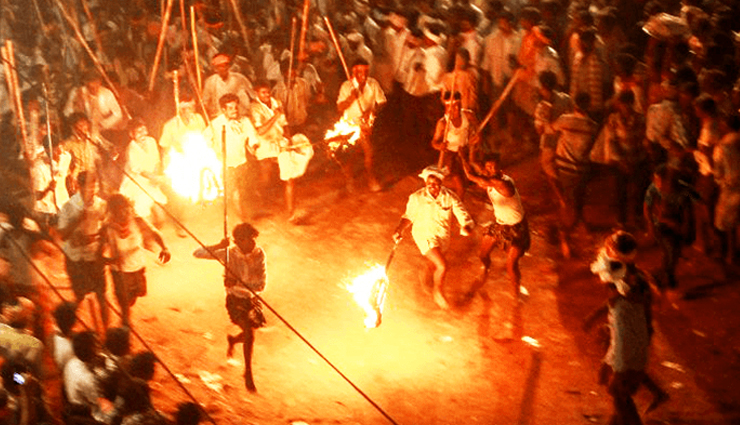
# The Kill Or Be Killed Festival, Bani Festival, Andhra Pradesh
Held by the Devargutta temple in Andhra Pradesh’s Kurnool during Dusshera, the Bani festival is celebrated by Hindu devotees, and is considered among the truly bizarre Indian traditions. Every year, hundreds of devotees from Andhra Pradesh and Karnataka gather with lathis (sticks) at the temple and hit each other over the head. The festival, which takes place at midnight, is held to commemorate Mala-Malleshwara’s (Shiva) killing of a demon. The ritual, where men hit each other on the head, takes place at midnight when the idols of the deities of Malamma (Parvati) and Malleshwara Swamy (a reincarnation of Lord Shiva) are brought out of the temple in a procession.
The men, most of whom are farmers, continue the ritual till dawn even if they are covered in blood. Medics are present to aid those who are injured. Police personnel are also deployed at the scene, however, they are limited to being audience members as sentiments regarding the rituals run high. This festival has reportedly been celebrated at the temple for over 100 years and was once apparently conducted using axes and spears instead of lathis. Over the last few years, many have been injured during the festival; however, no deaths have been reported.

# Drop Your Baby For Good Luck, Baby Tossing, Maharashtra And Karnataka
Among the most bizarre Indian traditions, it involves the tossing of babies from rooftops, an annual ritual that has been practiced by both Hindus and Muslims in India for over 700 years. Practiced in Baba Umer Dargah near Sholapur, Maharashtra and at the Sri Santeswar temple near Indi, Karnataka, it’s a ritual where babies are shaken and dropped by an experienced devotee of the shrine from a height of around 30 to 50 feet and caught in a sheet stretched and held tight by a group of men standing right below. The infants are then immediately returned to the parents. This practice, carried out throughout the year, is believed to bring the child and its family prosperity, good luck and health.
The ritual reportedly dates back to the time when infant mortality was high and medical knowledge was scarce. Parents’ of dying children were advised by a saint to build a shrine and toss the sick child from the roof as a display of their trust in God. The legend goes on to say that when the babies were dropped, a hammock-like sheet miraculously appeared mid-air and caught the infants. Since then, parents have promised to toss their new-borns as an offering to God in their prayers for a healthy child. Surprisingly, no injuries have been reported so far. It takes quite a leap of faith to be a part of this ritual. Most such traditions are borne from a deep-rooted faith in higher powers. However, a video of the ritual that went viral in 2009, prompted the National Commission for Protection of Child Rights to launch an investigation into the practice and order for it to be stopped.
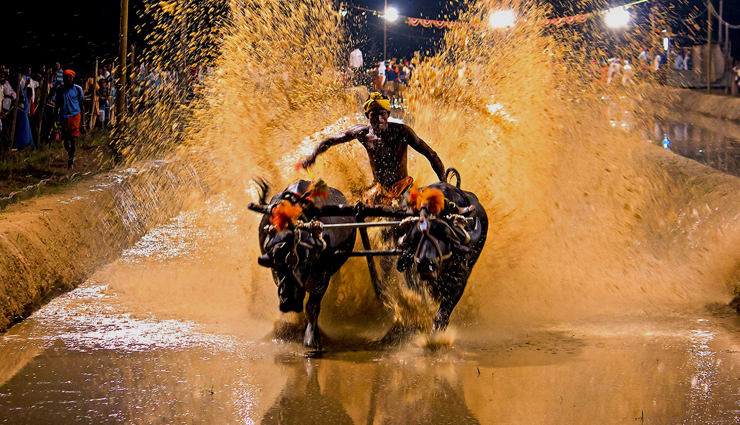
# Racing With The Buffaloes, Kambala, Karnataka
Practiced in Dakshina Kannada (South Kanara), Uttara Kannada, and the Udupi district of Karnataka and Kasargod in Kerala, Kambala is an annual festival that involves a buffalo race, which is a popular sport among the state’s farming community. The Kambala, which is held from November to March, is traditionally carried out in paddy fields filled with slush and mud. A jockey controls a pair of buffaloes as they race across the field against another set of buffaloes and accompanying jockey. The sport has been controversial for the past few years as animal activists have claimed that it is in violation of the Prevention of Cruelty to Animals Act, 1960. The sport was banned by the Supreme Court of India in 2014. However, the Prevention of Cruelty to Animals (Karnataka Amendment) Ordinance, 2017 approved an organisation of the event only if steps are taken to avoid cruelty to the animals.
Traditionally, the Kambala was non-competitive and was seen as a way to offer thanksgiving to the gods for protecting the animals from disease. One of the most unique traditions of India, the Kambala drew the world’s attention in February 2020 when a Kambala jockey Srinivas Gowda won a 145-metre race in 13.62 seconds. They covered the distance of 100 meters in 9.55 seconds beating Usain Bolt’s record of 9.58 seconds.
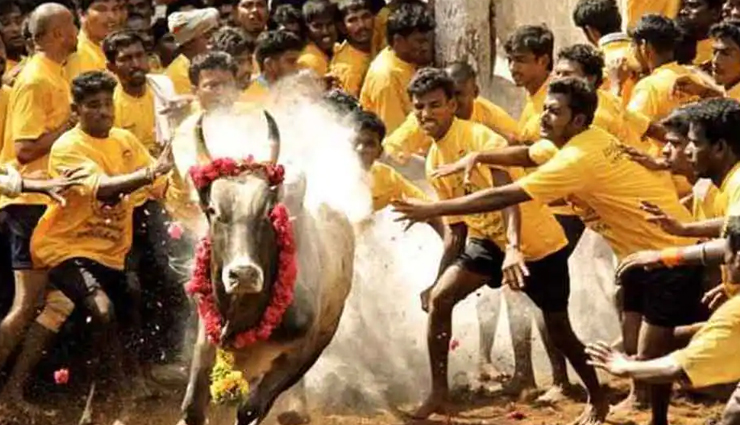
# Taming The Raging Bull At The Cost Of Your Life, Jallikattu, Tamil Nadu
While many would choose to run away from a raging bull, Jallikattu, one of the most bizarre traditions in India, calls for its participants to not only face, but also tame, a raging bull. This dangerous sport is followed in Tamil Nadu as part of Pongal (a South Indian harvest festival) celebrations. Hundreds of men chase a bull through a narrow passageway and try and grab the prize that is fixed to its horns by clinging onto the animal. This sport is one of the oldest of India’s traditions as it has been traced back to between 2,500 and 1,800 BCE. The bulls used in this sport are raised wild, and special care is taken to feed and exercise them to make them strong and sturdy for the fight. The men are not allowed to carry any weapons. Meanwhile, the bull’s horns are sharpened.
While neither the bull nor the participants are intended to be killed in this sport, 43 men and four bulls have lost their lives between 2008 and 2014. Jallikattu (which loosely means ‘coins tied to the bulls’ horns’) was banned by the Supreme Court of India in 2014, along with the Kambala, on the grounds of cruelty towards animals. However, in 2017, massive protests were held demanding that the Government of India and the Tamil Nadu Government make it legal. The protests were successful and the dangerous sport is back, and legal.
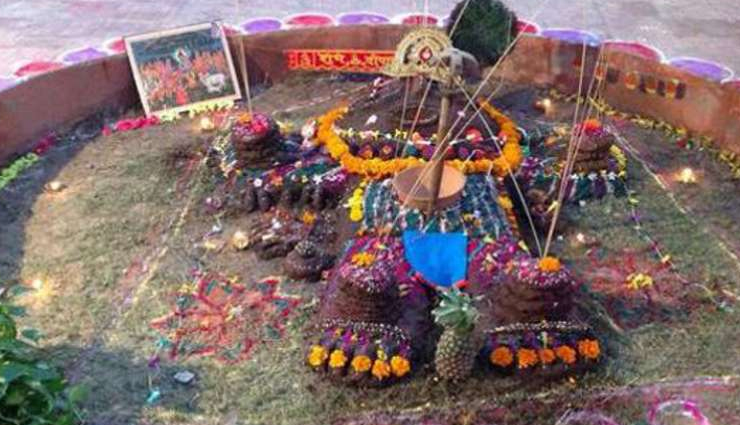
# Cow Trampling Ritual, Gowardhan Puja, Madhya Pradesh
After racing with buffaloes and facing down raging bulls, here is another one of the more bizarre customs of India. This one requires you to be trampled by cows! Among the stranger Indian traditions, the Gowardhan Puja, as performed by some villagers in Madhya Pradesh, calls for people to lay face-down on the ground while a group of cows run over them at full speed. The livestock are painted in bright colours and decorated with bells and garlands. This ritual is said to bring the participants good luck and prosperity and is said to have been in practice since the era of the royals. The Gowardhan Puja, on the day after Diwali, is said to have begun when a man prayed for a son and his wish was granted. The villagers started observing this as an annual custom ever since the incident. While the locals deny that anyone is severely injured in the ritual, minor injuries are treated with cow urine and dung.





